The Rumors of Her Death
Permanent link
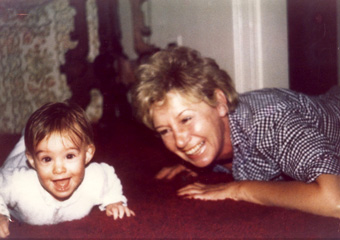
Libby and Bubba, crawling like pros
When the men were gone and she could no longer think of the word for the thing she used to light cigarettes, my grandmother, Barbara Russakoff—Bubba to those who loved her most—gave up, wrote a note, and overdosed on anti-depressants and applesauce. And it didn't work.
That was seven years ago. I was sitting in a gray cubicle in Boston pretending to work when I got the call from my mom. I don't remember the five-hour drive to Bubba’s home in Skowhegan, Maine. It was strange to be in her house without her. For the first time I could remember, the large, round schoolhouse clock on the wall opposite the table was silent. When I was a kid, its tick was the constant soundtrack of summer. A few days earlier, Bubba had told my mom that it was just wound too tight and not to bother about fixing it.
We drank too much, playing cards and telling old stories. Bubba was, as far as I’m concerned, the best grandmother a kid could have. She was beautiful and wild, she smoked—as my mom explained—using each cigarette like punctuation. She played bridge and golfed, she had affairs with married men and painted her toenails coral, she made me chicken salad with sliced cucumbers, taught me to play poker and drove all over the state (speeding, with me perched on the armrest) to find the Blueberry Muffin doll I was desperate to have. She smelled like Salem Ultra Lite 100s and Jean Nate. She loved men who were unapologetic cads and told me to keep a list of people I would bite if I ever got rabies. She thought I was the best kid ever—aside from my mom. I loved her unconditionally.
And there we were in that kitchen without her. Rooting around for a bottle opener, my mom found an old grocery receipt. Bub liked to listen to the radio and write down quotes that appealed to her. In her arthritic scrawl were Mark Twain’s words, "The rumors of my death have been greatly exaggerated." It was followed by a reminder to herself: "Get cigarettes."
I would have been happy if that had been the official suicide note—those were apt, hilarious instructions. Then, on her desk, I found a yellow Post-It just big enough to hold her words: "Libby, don’t mourn. Be happy that I can do what I want! I love you." If Bubba had actually died, that note would have been the best thing.
When I went to see Bubba in the hospital the morning after her attempt, I thought about the year my friend’s grandmother died; I was four. When my parents and I visited Maine that summer, I was worried and I asked Bubba what would happen if she died. "Oh, I’ll still be your grandmother. I will just be your dead grandmother," she said easily. At the time, I was satisfied.
Bubba had been misdiagnosed with Parkinson’s disease three years before her suicide attempt. Her seemingly lifelong depression became increasingly more severe. Every time I called, I wondered if it might be the last time we would speak. She’d always been vocal about her plans to kill herself when she decided the time was right. But 20 years of contradictions between her words and her actions left me simultaneously expecting her suicide and feeling sure it would never happen.
In the hospital she was in pain and very confused because the large dose of drugs had caused hallucinations. In and out of restraints, she rubbed her heels raw trying to kick her way out of the bed. Bubba couldn’t move her arms much, so did the verbal equivalent of grabbing my mom by the sleeve when she mustered all her concentration to hatch a plan. "Call a cab." When my mom explained that she couldn’t, Bubba archly said, "If you wouldn’t be too cold, we could go sit outside on the curb and wait for the cab." Bubba is accustomed to getting her way and couldn’t imagine why my mom wasn’t following orders.
We’re not a religious family and often find in literature what I imagine others must find in prayer. Before I left her house that weekend, I came across a passage by E. B. White that Bubba had torn out of a magazine years before and stuck on her fridge: "Hope is the thing that is left to us in a bad time. I shall get up Sunday morning and wind the clock, as a contribution to order and steadfastness." I cried. My mom rolled up her sleeves with a sigh and sadly walked over to the old clock and took it off the wall. "Well, let's get it fixed," she said, hoping as I did that maybe Bubba and the clock would find their ways back to the little brown kitchen.
They didn’t. The years that followed were a mix of ups and downs, mostly downs, in various assisted living and nursing facilities. She was diagnosed with Alzheimer’s, which sometimes came in handy for my mom when the staff called her about Bub’s bad behavior—sleeping around, calling people bitches, the usual nursing home stuff. Blaming the Alzheimer’s was much easier for us than trying to explain that Bubba would have said and done these things quite happily before she was sick—and even more happily if she knew she was pissing people off.
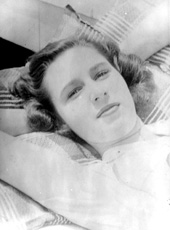
Bubba in her glam days
There was the time I brought my dog to visit, and Bub suddenly looked like a woman with an idea (or “idear” as pronounced in her thick Maine accent). She did always love a conspiracy. "Lib, could you train that dog to bite a nurse?" I got it right away: the rabies list. "It won't work. The dog’s had her shots." We sat and laughed until we cried.
And the time I called and we had this phone conversation, me in Chicago, and her in home number three in Portland, Maine:
Me: Hiya Bub, how’s it going over there?
Bub: I’m wearing a robe and there’s a man in my bed.
Me: I hope you know him.
Bub: (Giggling) Yes, that’s my boyfriend, Forrest. Your mom won’t let me talk to her about my sex life.
Me: Well, I’m glad you have one again. That usually perks you up. Forrest sounds nice.
Bub: He’s fine but he’s no Eddie or Carl.
Me: Hmm, maybe you’ll end up liking him more than you think you will.
Bub: No, I’ll never care for him much, but he does take his Viagra and the sex…
Me (interrupting—who wouldn’t?): Uh, that’s fantastic. Just great. So, tell me about Forrest, what did he do before he landed in the nursing home?
Bub: Oh! He screwed around!! I have to go, I’m proud on you!
She always said, “I’m proud on you” rather than proud of you—my friend Bevin once pointed out that this more aggressive form of praise was actually the highest, far as she could tell.
There was the time she told my mom she had a new suicide plan: her boyfriend Ed (married) would borrow his brother’s gun and shoot her. My mom, upon hearing this, couldn’t help it and started laughing. Bub got mad and went into one of her rants about how she can do whatever she wants and Jack Kevorkian is a saint among men and Mother Theresa is a fucking bitch. Never mind that she herself is a non-religious Jew and saints had been of very little interest to her in the past. Then she snarled, “Well, why won’t it work?” And my mom said, “Bub, Ed has Parkinson’s disease! He’ll never hit what he’s aiming at!” In the old days, the two of them would have laughed at the absurdity of it all. But Bubba just got very sad that once again, she had no way out.
Those were the semi-funny times when she had a rotating team of what she could call boyfriends—two of whom had one leg each, one who was legally blind and many with wives—and was always after my mom to buy a double bed for her room in the home. Back then we saw a glimmer of the old Bubba, even though she kept telling us she knew she was losing her mind.
The less good days involved her crawling into my lap and crying, pleading for me to smother her with a pillow. She explained that if I loved her, I could kill her and that I was a smart girl and would not get caught—and that if I did, the sentence probably wouldn’t be that long. Or her trying to get my mom to promise that when she died she would not cry and that she would leave her ashes at the cremation place for the garbage men. She didn’t care that I would be known in jail as “that girl who killed her grandmother” or that my mom would be that awful woman who abandoned her mother’s remains. If there had been a way for us to wish her dead, we would have because that’s how much we loved her.
The last time I saw her, about two years ago, she wasn’t sure who I was. I sat on her bed, she gripped my hand like there was something I could do. It felt like this was going to last forever, like it already had.
When my dad called last summer to tell me that Bubba died—from a heart attack uncharacteristically fast and drama-free—I crumpled to the floor, sobbing, miserable and relieved. It was, at the time, a shocking emotional mix. Looking back, I imagine lots of people feel similarly when they lose someone so loved but so very ready to go.
My mom wrote a beautiful obituary about Bubba’s competitive bridge skills, her humor, her strong belief in civil liberty and justice, her elegant cooking and how much she loved us all. There wasn’t a funeral to attend but there was an outpouring of support.
My friend Sam credited Bubba for my irreverence. Our friend Eileen wrote to my mom, “I'm sure that she felt that the best of her was in you and Libby.” My mom’s cousin said Bubba taught her that apple pie is a viable breakfast option. Diane, the woman who helped my mom navigate nursing home politics and became a terrific friend to her and Bub, wrote, “She was such a hot shit!” Bevin remembered knowing her when we were little and thinking that, with her teased-up hair and her stylish bright blue Reebok high-tops, she was far too glamorous to be a grandmother.
My fiancé Erik and I went to Maine to see my parents a couple of weeks after Bub died. My mom and I had planned to scatter her ashes behind one of the granite outcroppings in my parents’ yard. We'd had to give up our first choice of scattering them in the ocean because legally you can't release ashes until you're a few miles offshore. We may be from Maine but we are not marine people, so we chose the rocks at home.
In the morning, after coffee, my dad, Erik and I went out to the yard and my mom got the ashes. She poked her head out of the house and said, “Guys, I started thinking about something I'd somehow never thought about before—the wind.” In addition to not being mariners, we are clumsy people. We decided that scattering could end badly. As glib as we can be sometimes, no one wanted to hear, “Hey, you have a piece of Bubba on your arm.”
My dad said that he had a hydrangea ready to plant and suggested planting it on top of the ashes, so Erik dug the hole, my dad did the pouring and that was that. We spent the rest of the strange day at the beach and played some cards. Then, before dinner, my dad walked into the kitchen and said, “Well, I just watered good old Bubba.” We cracked up, realizing that in a sense, we’d given her a funeral and that it was one she would have been okay with.
When Erik and I went out East last summer, I checked on the plant, found myself saying, “bye, Bub” and then went to the beach. We played cards at the kitchen table, we laughed and told the old stories because we miss her. And, now that she is really gone, I got the clock out of my parents’ basement and brought it home.


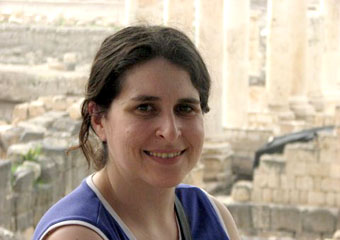
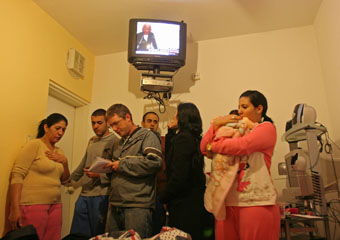
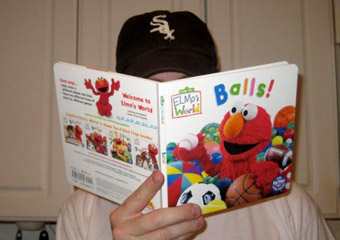
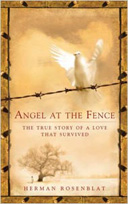

.jpg)



